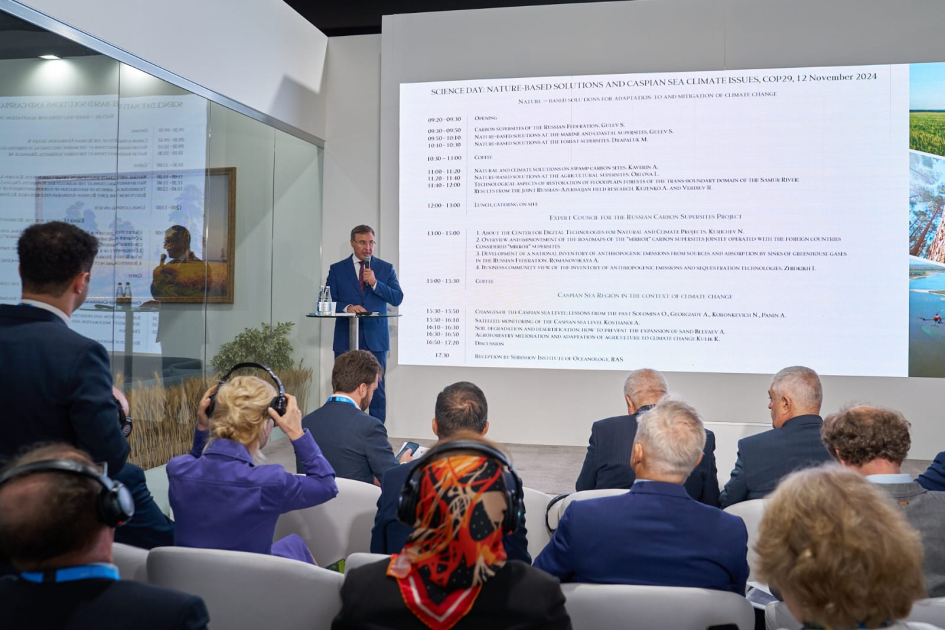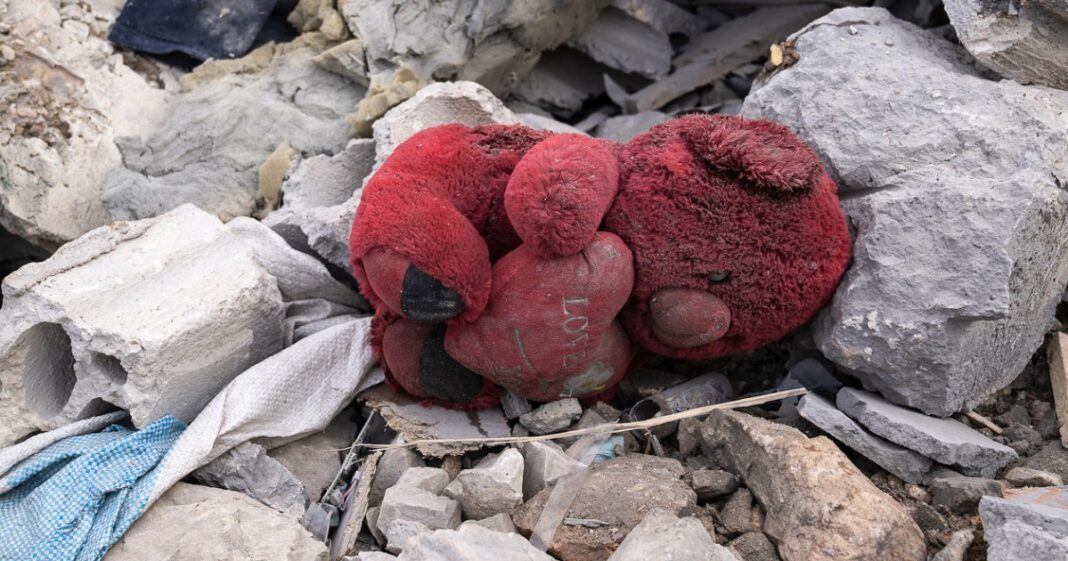BAKU, Azerbaijan, November 13. A significant
memorandum was signed between Azerbaijan and Russia on the creation
of a “mirror” carbon test site in the Kura-Araz Lowland during the
second day of the 29th session of the Conference of the Parties to
the UN Framework Convention on Climate Change (COP29), Trend reports.
The memorandum was signed following a session of the expert
council under Russia’s Ministry of Science. The agreement focuses
on collaboration between Azerbaijan’s Ministry of Ecology and
Natural Resources, Russia’s Federal Scientific Center for
Agroecology of the Russian Academy of Sciences, and the Russian
Federal Forestry Agency.
The signing ceremony was held in the presence of key officials,
and Russia’s pavilion at COP29 marked the celebration of Science
Day. During this event, several expert sessions took place,
including one led by Russian Minister of Science and Higher
Education Valery Falkov, who participated in discussions on the
creation of “mirror” carbon testing sites in Brazil, Azerbaijan,
and Serbia. These testing sites aim to develop unified
international protocols for monitoring and verifying climate
data.
“A similar carbon testing ground will be established in
Azerbaijan as well. Over the past year, two comprehensive studies
on environmental issues have been conducted. Scientists are working
towards specific goals, which are essential to the success of this
initiative. We believe that for policymakers to make well-informed
decisions, a robust scientific foundation is critical. In this
context, carbon testing grounds are of paramount importance. We are
analyzing methodologies used in different countries, adopting
shared approaches. These methods must be verified, reliable, and
scientifically sound to ensure that decision-makers can rely on the
data. Our collaboration with Azerbaijan continues to grow
stronger,” the Russian minister noted.
Sergei Gulev, head of the Laboratory at the Institute of
Oceanology of the Russian Academy of Sciences, added that
international cooperation on carbon testing was a key topic during
the meeting.
“As part of this initiative, we have begun establishing ‘mirror’
carbon test sites in Russia and other countries, with significant
activity focused in Brazil, India, Belarus, and China. The first
carbon fiber test sites will be reviewed today and are likely to be
approved. South Africa is next on our agenda.
We all face a common challenge—developing systems to monitor the
flow of greenhouse gases that harm the climate and to better
understand the environmental balance of specific regions. By
advancing the implementation of Article 6 of the Paris Agreement,
we can begin removing carbon emissions from the atmosphere. Russia
is progressing toward this solution, discovering promising
approaches at each carbon test site and intensifying efforts to
refine them.
We look forward to further strengthening our cooperation with
Azerbaijan. I would also like to highlight that soon, a marine
carbon test site will be established in the Caspian region,
specifically in Dagestan. The Caspian is particularly interesting
in this context, as the sea level is receding, uncovering vast
areas of land, and no research has yet been conducted in these
newly exposed zones,” he added.
Larisa Belan, Director of the Decarbonization Technology Center
in Bashkortostan, highlighted that the carbon testing site in her
region has been operational since 2021, studying the ecosystem’s
response to climate change.
“We are proud of our collaboration with Azerbaijan. Our testing
site is equipped with state-of-the-art technology, and we work
using fully transparent methods recognized by the international
community,” she added.
Marco Gutal, a professor at the University of East Sarajevo,
shared his perspective on the human impact on climate change,
emphasizing the role of carbon testing sites in addressing global
climate issues.
“Our goal is to measure greenhouse gases and compare the data we
collect with other ‘mirror’ test networks established in Russia and
internationally. This allows us to monitor environmental conditions
nearly anywhere in the world and provide insights that can help
address global challenges. We aim to make a meaningful contribution
to the global ecosystem and support efforts to combat climate
change,” he added.
The event then continued with a Q&A session.
To note, the 29th session of the Conference of the Parties to
the United Nations Framework Convention on Climate Change (COP29)
started in Baku on November 11. The United Nations Framework
Convention on Climate Change is an agreement signed at the Earth
Summit in Rio de Janeiro in June 1992 to prevent dangerous human
interference in the climate system.
The main expectation from COP29 is to agree on a fair and
ambitious New Collective Quantitative Goal (NCQG) on climate
finance. The COP29 chairmanship has launched 14 initiatives that
include linkages between climate action and the Sustainable
Development Goals, including green energy corridors, green energy
storage, harmony for climate resilience, clean hydrogen, methane
reduction in organic waste, action on green digital technologies,
and other topics.
Stay up-to-date with more news on Trend News
Agency’s WhatsApp channel

